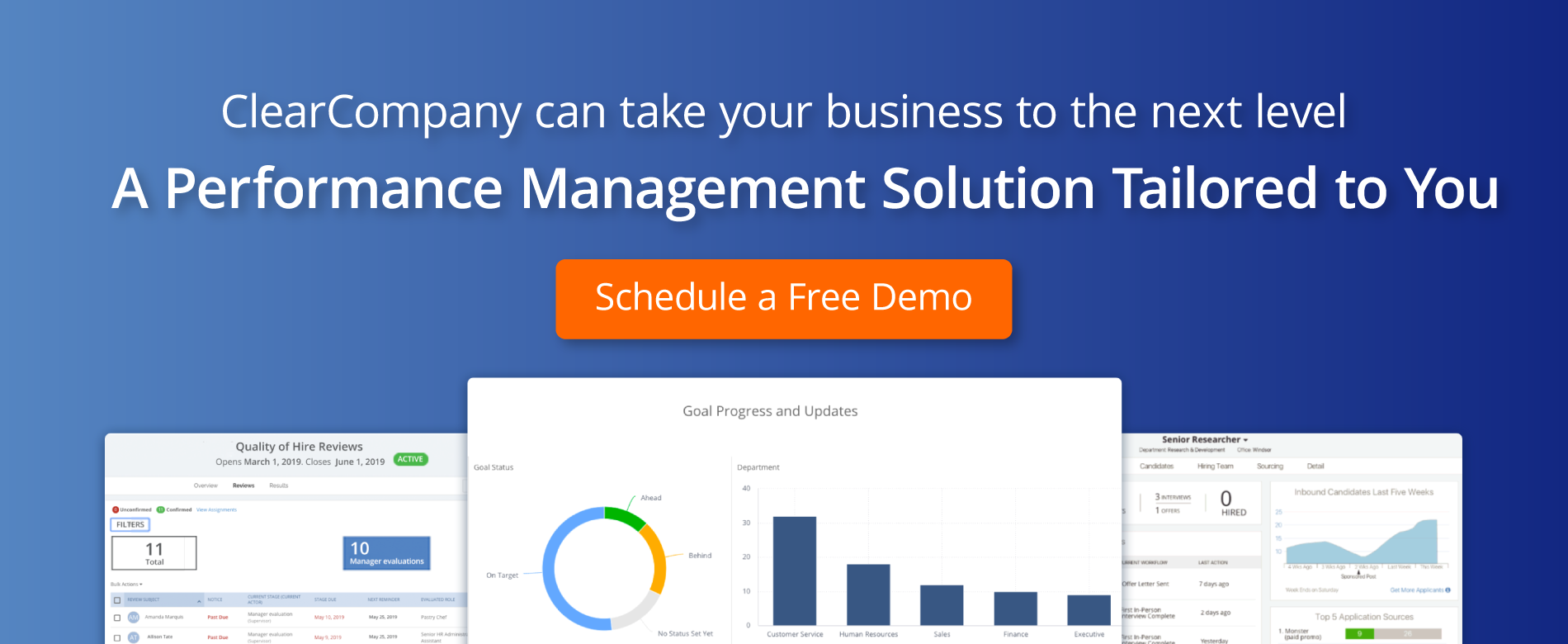Performance management is constantly evolving. A process once shunted into a once-a-year, anxiety-riddled meeting, has morphed into a more constant feedback loop between managers and their employees that occurs quarterly, monthly, and even weekly.
There are still companies that rely on outdated management practices that are no longer effective, but most are improving these processes and seeing positive results. Successful businesses can no longer rely on the most important conversations between managers and employees to happen once a year. As the marketplace has continued to grow, it’s pertinent that new management models are adopted. Take a look at our 5 tips for implementing better performance reviews.
Plan Ahead and Prepare
Managers should be discussing positive performance and areas for improvement regularly, even daily or weekly. These performance review discussions should emphasize critical points and give clear directions on how the employee can or should improve. 72% of employees surveyed felt that their performance would improve with corrective feedback.
Tip: A thorough Performance Management System will allow you to schedule your performance reviews automatically and wrap recent reviews into one easy-to-read report.
Make Performance Guidelines Clear
Describe exactly what you’re looking for from the employee and how you will assess their performance. It’s also important to discuss their role in the evaluation process. If your organization’s performance process includes an employee self-evaluation, share the form and talk about what self-evaluation entails.
Tip: Your Performance Management System should allow you to customize it enough to build your own scales, questions, and sections to make sure that it fits the needs of your organization.
Performance Reviews Should Be An Open Conversation
If you are doing all of the talking and not letting the employee get a word in, then the meeting quickly becomes a lecture making the performance review less effective. 68% of employees who receive accurate and consistent feedback feel fulfilled in their jobs. When the conversation is open and the employee is allowed to speak on behalf of their performance, they will feel appreciated and respected especially when you have to bring up performance that was subpar.
You want an employee who is motivated and excited about his or her ability to continue to grow, develop and contribute. Aim for performance reviews where the employee talks more than half of the time. Ask questions that lead to an open answer, so they will feel comfortable speaking. Here are a few examples:
- What do you feel like you're doing well?
- Why do you think you are doing this particular job well? Which skill does it use of yours? Which value of our company does it exemplify?
- What do you feel like you need to work on?
- If this is a new issue, what has brought it to the surface? If it is a recurring issue, what are you doing to resolve it?
- How can I better support you in your job?
Tip: A Performance Management System that supports 360 feedback or one that allows the employee being reviewed to respond is key. This makes the employee feel as if they have a say in their reviews, and it can be tracked for future use.
Performance Feedback Should Happen In Real-time
Performance discussions should be conducted on a regular basis, not just once a year. Effective managers give employees feedback in real-time and leverage a Performance Management System to deliver this feedback. In a recent survey, 50% of respondents say that because their organizations use real-time feedback, they don’t experience retention issues.
68% of employees who receive accurate and consistent #feedback feel fulfilled in their jobs. Use these tips from @ClearCompany to better your #PerformanceReview process and retain your top talent:Tip: Your performance reviews should have a function that allows you to give feedback or praise in near real-time. Tie feedback to a goal that relates to the company or the individual, so they know what they are working toward.
Set Realistic Goals
This should be a significant portion of the meeting. While reviewing performance is important, it should be related to the end goal, whether that be a company goal or one that you and the employee set. Millennials' top three work-related fears are getting stuck with no development opportunities, not being able to realize their career goals, and not finding a job that matches their personality.
Find out what goals and plans the employee has for their career. This is a great time to see if the employee’s plans and the company's plans are aligned or very different. Talk about the skills and experience needed for the employee to accomplish their career goals.
Tip: Find a Performance Management System that gives you clear reporting on how goals are being tracked and how each individual’s performance is contributing.
Finding the right tools that allow you to give employees the feedback they need is easy with the help of ClearCompany. Reach out to one of our experts today to schedule a demo. Sign up now!
.png)


